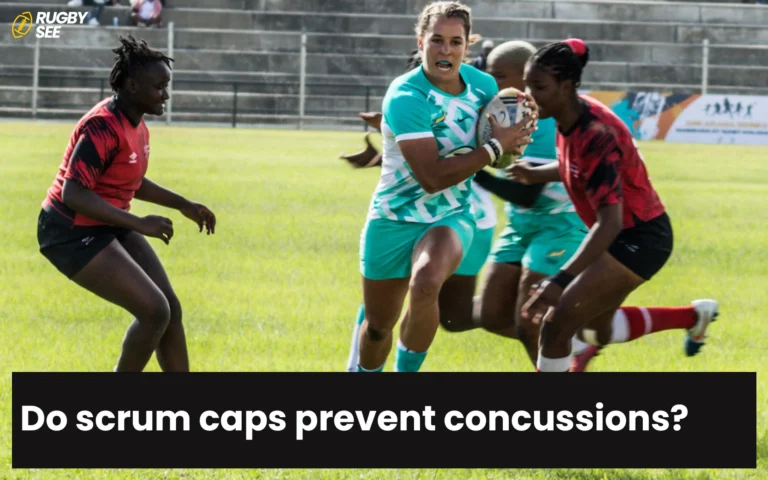Testosterone plays a critical role in athletic performance, enhancing muscle mass, strength, and recovery. Given its significance, it’s not surprising that the question of whether rugby players take testosterone has surfaced, especially considering the physical demands of the sport. This article will explore the use of testosterone among rugby players, the regulations governing its use, and the ethical implications involved.
Understanding Testosterone in Sports
Testosterone is a naturally occurring hormone in both men and women, though men have significantly higher levels. It is crucial for muscle growth, strength, and overall physical performance, which is why it has become a focal point in discussions about performance-enhancing drugs (PEDs).
The Prevalence of Testosterone Use in Rugby
Rugby is a sport that requires a high degree of physical strength, stamina, and resilience. Players often seek ways to enhance their performance legally through nutrition and training, but there can be temptations to venture into illegal enhancements like testosterone supplementation and if you want to know about Using Soccer Cleats in Rugby read can you use soccer cleats for rugby?

However, it’s crucial to clarify that not all rugby players take testosterone or other PEDs. The majority adhere to the strict regulations set by governing bodies such as World Rugby, the sport’s international governing body. These organizations enforce rigorous drug testing programs to ensure fair play and athlete health.
Drug Testing and Regulations
World Rugby, along with national bodies like the Rugby Football Union (RFU) in England and New Zealand Rugby in New Zealand, has strict policies against the use of banned substances, including synthetic testosterone. Rugby players are subject to random drug tests both in and out of competition to detect banned substances. These tests are designed to catch athletes who are cheating but also to protect the integrity of the sport.
The use of testosterone without a legitimate medical reason and appropriate prescription is considered doping and is strictly prohibited. The consequences for players caught using such substances can be severe, including suspensions, fines, and even lifetime bans from the sport.
Therapeutic Use Exemptions (TUEs)
There are instances where athletes might require the use of substances like testosterone for legitimate medical conditions. In such cases, players can apply for a Therapeutic Use Exemption (TUE), which allows them to take the necessary medication without facing doping charges. However, obtaining a TUE is a rigorous process that requires comprehensive medical evidence to justify the exemption.
Ethical Considerations and Health Risks
The ethical debate surrounding the use of testosterone in sports is complex. On one hand, there is a strong argument for maintaining a level playing field where no athlete has an unfair advantage due to PEDs. On the other hand, athletes seeking to recover from injuries may consider testosterone as part of their treatment, under medical supervision and within the rules of TUEs.

Moreover, the health risks associated with unauthorized testosterone use are significant. These can include liver damage, hormonal imbalances, increased risk of heart disease, and psychological effects such as aggression and depression. The potential long-term health consequences are a major reason why governing bodies in rugby and other sports are so stringent about PEDs.
The Cultural Impact on Rugby
The culture within rugby has traditionally emphasized toughness, endurance, and physicality. While this has bred a sport of intense competition and camaraderie, it has also pressured some players to seek performance enhancements. Education programs have been implemented by various rugby organizations to address these pressures, aiming to educate players on the risks of PEDs and promoting clean sport.
The debate surrounding testosterone and its use in sports like rugby raises broader questions about the future of sports ethics and the ongoing battle against doping. With advances in biotechnology and the increasing sophistication of both doping techniques and anti-doping technology, the challenge is ever-evolving. Here’s a deeper look into the measures in place and the future implications for rugby and other sports.
Advancements in Anti-Doping Technology
As doping methods become more advanced, so too do the techniques to detect them. Anti-doping agencies are constantly updating their testing methodologies to keep pace with new developments. This includes not only detecting the presence of exogenous testosterone but also identifying markers of biological manipulation, such as changes in hormone ratios and biological markers that indicate synthetic hormone use.
The World Anti-Doping Agency (WADA) continuously revises its list of prohibited substances and methods to include new forms of cheating as they emerge. These efforts are crucial in maintaining the credibility and fairness of competitive sports, including rugby.
The Role of Genetics and Future Challenges
Emerging research into genetics and sports performance suggests that future discussions on doping might also include genetic enhancements. For example, gene editing technologies could potentially be used to alter an athlete’s DNA to enhance muscle growth or oxygen utilization, raising new ethical and regulatory questions.

As science advances, the line between therapeutic intervention and enhancement may become increasingly blurred. This will pose significant challenges for regulatory bodies in distinguishing between health treatments and attempts to gain an unfair advantage.
Education and Prevention Efforts
Given the risks and ethical dilemmas associated with testosterone use and other PEDs, education remains a critical tool in prevention efforts. Rugby organizations around the world invest in educational programs to inform players, coaches, and medical staff about the dangers of doping, the importance of fair play, and how to remain within the rules while maintaining peak performance.
These programs not only focus on the consequences of getting caught but also emphasize the health risks and the moral implications of doping. By fostering a culture that values integrity over winning at any cost, rugby can protect the essence of the sport and its athletes.
Community and Rehabilitation Approaches
For players who have fallen into the trap of doping, there’s a growing focus on rehabilitation and reintegration into the sport. This approach not only helps in the recovery of the individual athlete but also sends a positive message about second chances and the possibility of redemption. Community support programs, mental health resources, and career advice play significant roles in these rehabilitation efforts.
Conclusion
In summary, while the use of testosterone without medical authorization is prohibited in rugby, the sport continues to face challenges related to doping. The future will likely bring more sophisticated forms of enhancement, and the community must be ready to address these with robust ethical discussions, advanced technological responses, and comprehensive educational initiatives and if you want to know about best Italian Rugby Player read Who is the best Italian rugby player?
In conclusion, while testosterone is a powerful hormone that can significantly enhance athletic performance, the notion that rugby players commonly use testosterone without medical authorization is largely a misconception. World Rugby and other governing bodies have established strict anti-doping measures to ensure that the sport remains fair and safe for all competitors. The focus remains on promoting a clean sport environment, where success is achieved through hard work, talent, and fair competition, rather than through the use of banned substances. As the sport continues to grow globally, maintaining these standards is crucial for the integrity and future of rugby.










